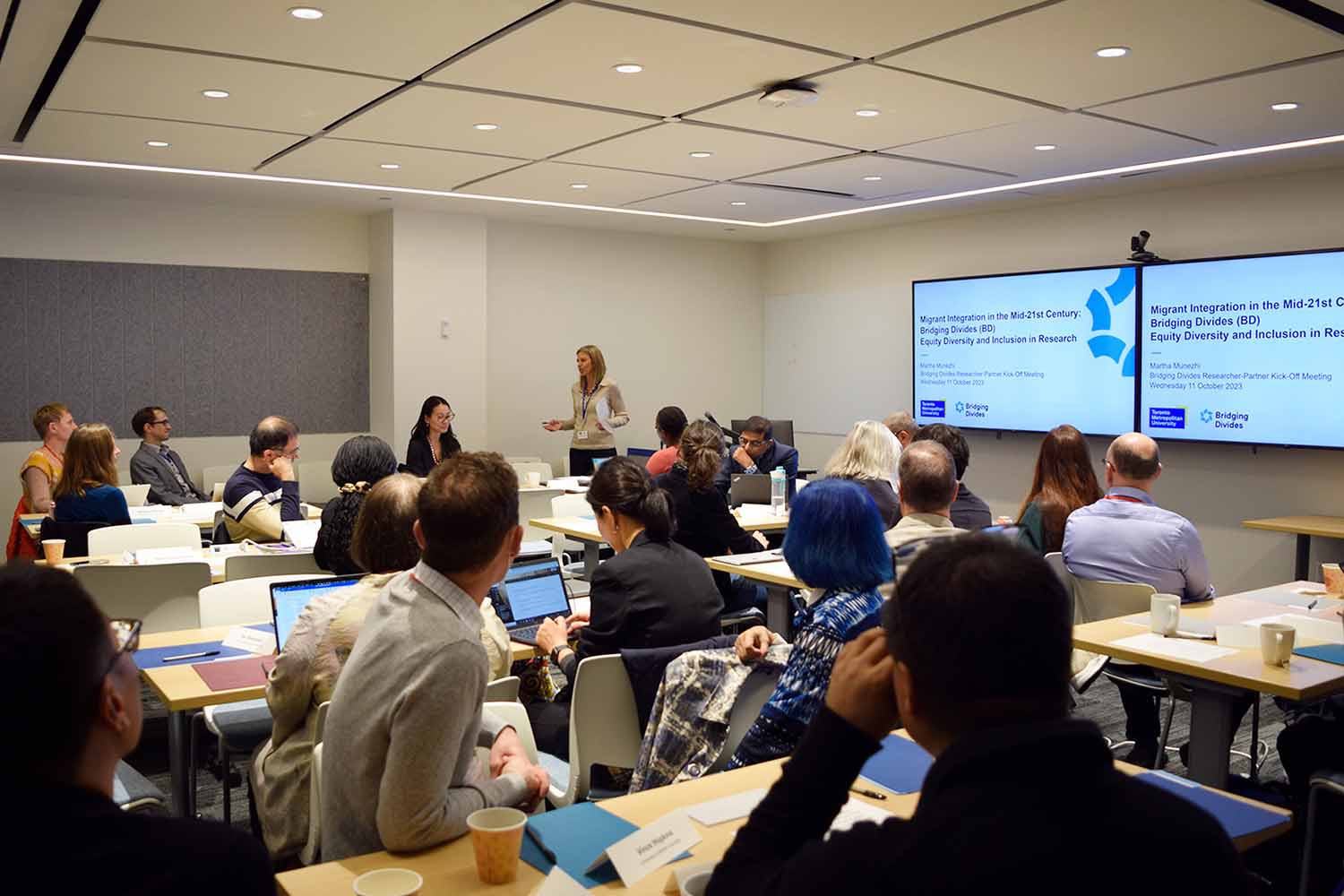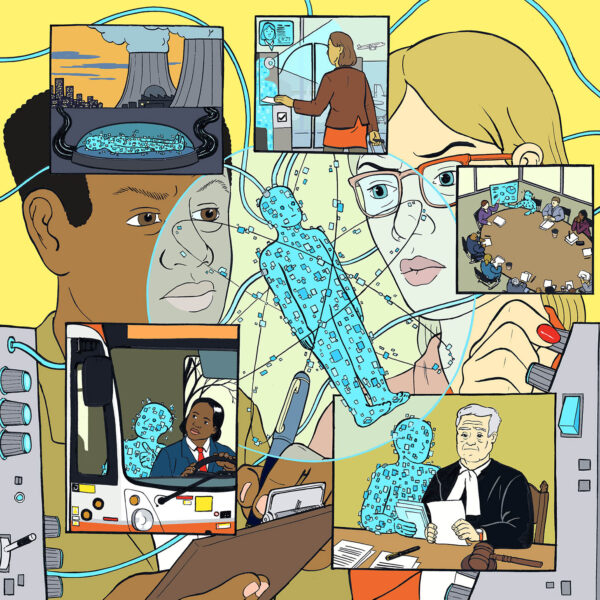In April 2023, TMU announced that it had received a prestigious $98.6 million grant from the Canada First Research Excellence Fund (CFREF) to lead a multi-institutional, interdisciplinary research initiative to study immigration, integration and how technology can be leveraged in a time of social and economic transformation.
It’s the single largest research grant TMU has received to date, and Anna Triandafyllidou, Canada Excellence Research Chair in Migration and Integration and scientific director of the Migrant Integration in the Mid-21st Century: Bridging Divides program, recognized the accomplishment. “It’s not often that you get this kind of funding in the social sciences and in migration research,” she says.
The seven-year Bridging Divides research program is now underway, with 25 research leads and more than 100 scholars – from TMU, Concordia University, UBC and University of Alberta – working collaboratively under four major themes:
- Immigrant health and well-being: Employing innovative social and technological strategies and tools to engage immigrant communities in prioritizing needs and co-creating solutions to reduce health disparities.
- Place and infrastructure: Exploring how smart city technologies can reinforce social infrastructure to optimize the resilience of urban communities.
- Employment and lifelong learning: Examining whether and how advanced digital technologies can be strategically applied to improve immigrants’ economic integration.
- Citizenship and participation: Considering how advanced digital technologies affect civic and political participation and how they can be harnessed to build resilient, inclusive and sustainable communities.
The entire team says that they think the research program has the potential to produce multilayered outcomes that will impact individuals, communities and policy-makers.
“Canada is often touted as a leader in immigrant integration,” says Rupa Banerjee, lead for the employment and lifelong learning theme. “So I hope we can make some contribution to the theoretical model of how immigrants actually settle and integrate into societies.”
From a practical perspective, she thinks her team can provide a lot of perspective on how things can be done better. “I have a lot of optimism around how we can include and involve all stakeholders, including employers, higher education institutions and all other peripherally related bodies like occupational licensing in this process of enabling immigrants to integrate, so it's a whole society approach, rather than relegating the responsibility to immigrants.”
Bilal Farooq, Canada Research Chair in disruptive transportation technologies, and place and infrastructure theme lead has the same optimism. “The digital twin approach that we are developing to run simulations is something that could be readily used by municipalities, and we'll be working very closely with them to define the kinds of scenarios that should be simulated,” he says. “So the outputs that come out of it could be useful for policy-making.”





